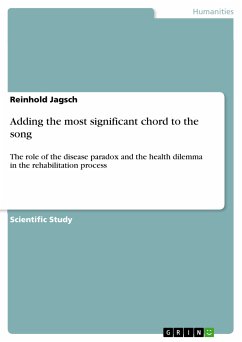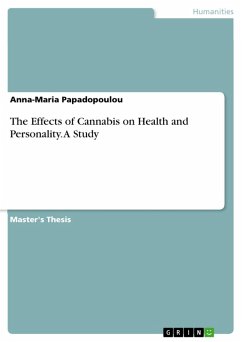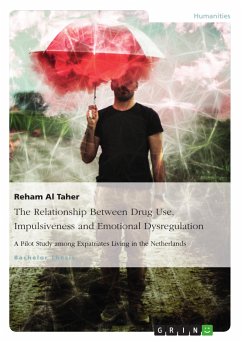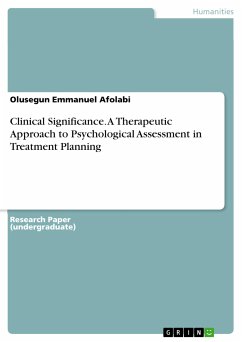
Adding the most significant chord to the song (eBook, ePUB)
The role of the disease paradox and the health dilemma in the rehabilitation process
Sofort per Download lieferbar
Statt: 17,95 €**
15,99 €
inkl. MwSt. und vom Verlag festgesetzt.
**Preis der gedruckten Ausgabe (Broschiertes Buch)
Weitere Ausgaben:

PAYBACK Punkte
0 °P sammeln!
Scientific Study from the year 2010 in the subject Psychology - Clinical Psychology, Psychopathology, Prevention, grade: keine, University of Vienna, language: English, abstract: Summary. Background: This article provides an overview of studies in which assessments of specific functional capacity, made by experts on the one hand (objective) and by patients on the other (subjective) were compared in various patient groups. In essence, these data reveal marginal or insignificant associations. Methods: Based on these considerations, a theoretical differential-diagnosis model of objective findings...
Scientific Study from the year 2010 in the subject Psychology - Clinical Psychology, Psychopathology, Prevention, grade: keine, University of Vienna, language: English, abstract: Summary. Background: This article provides an overview of studies in which assessments of specific functional capacity, made by experts on the one hand (objective) and by patients on the other (subjective) were compared in various patient groups. In essence, these data reveal marginal or insignificant associations. Methods: Based on these considerations, a theoretical differential-diagnosis model of objective findings/subjective state of health is presented. By dichotomization of specific functional capacity at these two levels, the model permits the classification of a patient cohort into four sub-groups: Patients with concurrence between subjective and objective assessments are referred to as "the fortunate" while those with a negative concurrence are termed "the unfortunate". In case of discrepancies between these two levels, for instance when patients' subjective assessment was good although their condition was obviously poor, they are considered to be in a so-called "disease paradox". Alternatively, patients whose subjective assessment of their condition was poor although the objective findings were positive, were considered to be in a so-called "health dilemma". Results: The study in a sample of patients who had received an artificial hip joint for mobility disorders revealed striking differences in health-related quality of life (HrQol). Comparisons of HrQoL data pre- and post-operatively in the whole sample demonstrated an improvement in five of six dimensions (loss of energy, pain, emotional reaction, sleeping problems, and problems in physical mobility, p<0.01) of the Nottingham Health Profile. Specifically, after grouping patients accordingly to the proposed model striking positive changes in HrQoL were registered in patients of the fortunate and disease paradox groups while the improvements in the health dilemma and unfortunate groups were minimal. Conclusion: Timely identification of these patients in the process of rehabilitation would significantly contribute to the achievement of a good health-related quality of life for all patients.
Dieser Download kann aus rechtlichen Gründen nur mit Rechnungsadresse in A, B, BG, CY, CZ, D, DK, EW, E, FIN, F, GR, HR, H, IRL, I, LT, L, LR, M, NL, PL, P, R, S, SLO, SK ausgeliefert werden.













